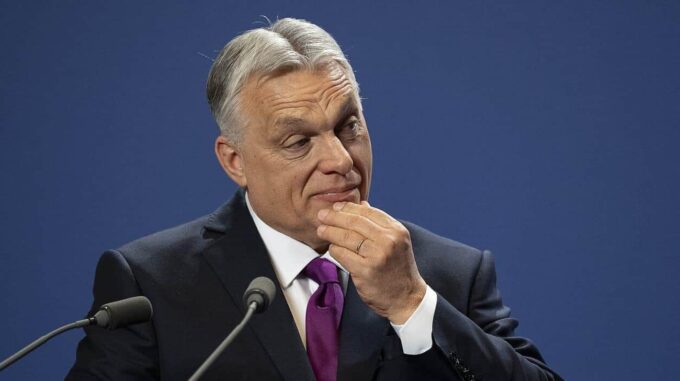European MEPs Call on Brussels for Radical Actions Regarding Hungary’s Funding

Maintaining democracy and upholding European Union values are key issues gaining increasing resonance in European politics. Amid escalating tensions with Budapest, a group of Members of the European Parliament (MEPs) has addressed the European Commission leadership with a call to fully freeze all financial flows allocated to Hungary. They argue that the country, led by nationalist Prime Minister Viktor Orbán, not only shows no intention of gradually returning to democratic standards but is experiencing a “further alarming regression,” undermining the foundations of European values and the integrity of joint policies. The statement, signed by 26 MEPs, appeared against the backdrop of accumulating evidence and debates that repeatedly stoke conflict between Hungary and Brussels. Referencing recent legislative acts, the appeal mentions laws banning LGBTQ+ parades in Budapest and reforms which, according to European parliamentarians, put pressure on judicial independence and worsen the situation for opposition forces and civil activists. The document emphasizes that these so-called “reforms” repeatedly halt progress in protecting human rights and democracy, instead strengthening authoritarian tendencies. “Continuing to fund a regime that openly opposes European values is unacceptable. We deem it necessary to immediately apply all legal means to halt any financing of Hungary in order to stop the further degradation of democracy and the rule of law in this country,” the MEPs’ statement reads. The initiative was supported by representatives from various political factions of the European Parliament — besides the Greens, the document was signed by members of the center-right European People’s Party (EPP), the centrist Renew Europe group, and the Social Democrats. This underscores broad political support for the idea of taking “tougher” steps towards Hungary, which has long been subject to criticism from European institutions over breaches of the rule of law and democratic standards. Preceding these events was the remarkable number — over 80 editors of leading European media outlets — who on May 20 signed a petition urging the cancellation of the Hungarian government’s new legislative initiatives. These initiatives, in turn, aim to restrict freedom of speech and impose limits on civil society and media activities, which they justify as tools of “Ukrainian propaganda.” The Hungarian government also does not hide its connection to the situation in Ukraine, citing opposition to “external information attacks,” and considers it necessary to protect “national interests” from perceived external threats. These processes especially exacerbate the internal political situation in Hungary. Less than a year before the upcoming parliamentary elections, Orbán’s Fidesz leadership is conducting an active campaign in a style of “strengthening” national identity, while maintaining control over the judiciary and media. This triggers concern not only among opposition circles but also among many European observers, as such actions systematically undermine trust in democracy across Central Europe. Meanwhile, Brussels is witnessing intense political battles over future funding and cooperation with Hungary. By inflating one of the main points of dispute — adherence to the rule of law — European parliamentarians are making another attempt to defend EU values and call for stricter oversight of the use of euro-injections. Against this backdrop, discourse about the need to pursue justice and halt the “threat of authoritarianism,” which increasingly engulfs some leading European countries, is again gaining prominence in society. It remains to be seen what specific consequences Hungary might face in case of a full freeze on funding and how this will influence the country’s internal political course. However, the open conflict between Budapest and Brussels, complicated by growing internal problems, sparks renewed debates about the future of the European Union — whose core principles are unity and the supremacy of values and human rights.

